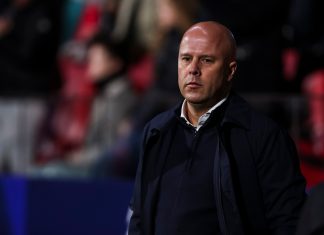Defeat against Israel was the straw that broke the camel’s back, certainly as far as England coach Stuart Pearce was concerned. Pearce laid into his England charges after their limp exit from the European under 21 championships in Israel, saying that he shouldn’t be questioned for other people’s failings. He felt the players should front up for their performances, which he was shocked and saddened by, it seemed.
Pearce was certainly naïve in seeking to spread responsibility elsewhere – hardly leadership material. But then again you can hardly blame him for being rather irritated at the attitude and performances of some of his young charges. Wilfried Zaha, Nathan Chalaboah, Steven Caulker and Danny Rose, to name just a few, are capable of better.
Yet England’s defeats highlight some important problems that the country seems to struggle to get to grips with. For one thing there is the chronic issue of coaching, with English players hopelessly short when it comes to the tactical and technical side of the game. Yet still they beat Norway twice in qualifying, only to be completely outplayed by the same team in Israel. What explains that? Well essentially it was a case of the fact that the England team in Israel was weakened by the absence of star players. Phil Jones, Jack Wilshere, Alex Oxlade Chamberlain, Kyle Walker, Carl Jenkinson, Jack Rodwell and Danny Welbeck were amongst those eligible for the under 21s who were not present.
That is partly the fault of the FA itself, seemingly unable to work out how to get Oxlade Chamberlain and Jones from Brazil to Israel in time for a football match. Russia managed it with Alan Dzagoev, getting him from Portugal after a World Cup qualifier there. Yes, David Bernstein the FA chief was right to say going to Brazil for a friendly was great experience for some of England’s players. But did he not think it was possible to send a player on a luxury flight over the Atlantic?
The other issue is that the FA has been for a while and continues to be dictated to by the Premier League and its clubs. The FA has so little power and achieves little co-operation from Premier League clubs largely owned by foreign owners who couldn’t care a less about the wellbeing of the English national team. That too, hampers things.
It is hard to escape though, from the conclusion that it ultimately comes down to coaching. England has 3,000 coaches, compared to 24,000 in Spain, 30,000 in Italy and 35,000 in Germany. The inability to develop more coaches is a key reason why youngsters suffer. There is a simplicity and naivety to England at international level. As Willy Meisl noted after England’s 6-3 humiliation by Hungary in the 1960s, England prioritise pace and power over precision and passing. Brawn over brain seems to persistently be the key characteristic looked for in young English players. There is a fundamental desire to destroy, to stop, rather than to create, and be imaginative with the ball.
That ultimately continues to hold England back, and the longer it goes on, the more England will suffer at international level.





